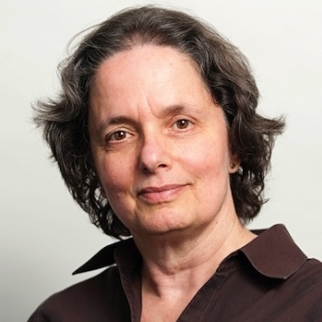If Martin Luther King Jr.’s legacy teaches us one thing, it’s that the fight for civil rights is not particular to a time, a place, a people or a gender.
It’s still shocking to watch vintage 1960s TV footage and see moms and dads yelling at someone else’s children for simply walking up the steps of a high school.
Now, we watch all-too-similar images on YouTube as we confront what’s happening to women and girls in Israel.
In Beit Shemesh just last month, TV cameras captured a frightened 8-year-old child walking to school with her mother. That girl, Na’ama Margolese, was terrified because Charedi Jews who don’t like the length of her skirt or the sleeves on her shirt regularly have spit on her and cursed her. The girl’s mother, Hadassa Margolese, who grew up in Los Angeles, talked to our reporter, Larry Derfner, in this issue of The Journal (p. 13) about her fight to maintain her child’s rights and dignity in their hometown of Beit Shemesh.
In recent years, ultra-Orthodox Charedi Jews in Jerusalem routinely have forced women riding bus lines that pass through ultra-Orthodox neighborhoods to sit at the back. And now, as the freedom fighters did in the American South, in Israel, protesters have come together to defy such rules. Earlier this month, groups of men and women boarded buses in Jerusalem and Ramat Gan, sitting together to draw attention to the gender segregation on public transportation that the Charedi community has demanded.
It would seem a no-brainer that, in a democracy, public spaces belong to all people — the civil rights of all human beings cannot be limited by the desires or wishes of a single group. But that is what has been going on for years in some neighborhoods of Israel, where not only are rules of segregation enforced through harassment, but the government has not stepped in to right these wrongs.
Whether by race or by gender, segregation in public spaces defies the dignity of human beings. No democracy can tolerate this.
As we remember Martin Luther King Jr. this weekend, let us remember a story he told at a Friday night Shabbat service at Temple Israel of Hollywood, right here in Los Angeles, on Feb. 26, 1965.
“Some time ago, Mrs. King and I journeyed to that great country known as India, and we had some marvelous experiences. … I remember one afternoon that we journeyed down to the southernmost point of India in the state of Kerala. And I was to address that afternoon some high school students who were the children mainly of parents who had been ‘untouchables.’ And I remember that afternoon that the principal went through his introduction, and when he came to the end, he said, ‘I’m happy to present to you, students, a fellow untouchable from the United States of America.’ And for the moment, I was peeved and shocked that he would introduce me as an untouchable, but pretty soon my mind leaped the Atlantic, and I started thinking about conditions back home. And I started thinking about the fact that I could not go in to most places of public accommodation all across the South.
“I started thinking about the fact that 20 million of my black brothers and sisters were still at the bottom of the economic ladder. I started thinking about the fact that Negroes all over America, even if they have the money, cannot buy homes and rent homes of their choices, because so many of their white brothers don’t want to live near them. I started thinking about the fact that my little children were still judged in terms of the color of their skin rather than the content of their character. And I said to myself, ‘I am an untouchable, and every Negro in the United States is an untouchable.’ And segregation is evil, because it stigmatizes the segregated as an untouchable in a caste system. We’ve been in the mountain of segregation long enough, and it is time for all men of goodwill to say now, ‘We are through with segregation now, henceforth, and forever more.’ ”
King’s uplifting words — here and throughout his writings — can give to us, today’s untouchables, the inner peace to turn the other cheek, to keep walking forward with our daughters toward a better tomorrow.
Let us honor King’s memory and walk to school with Hadassa and Na’ama Margolese; let us send our support to the freedom fighters in Israel who refuse to have their children spat upon or to sit at the back of the bus.























 More news and opinions than at a Shabbat dinner, right in your inbox.
More news and opinions than at a Shabbat dinner, right in your inbox.